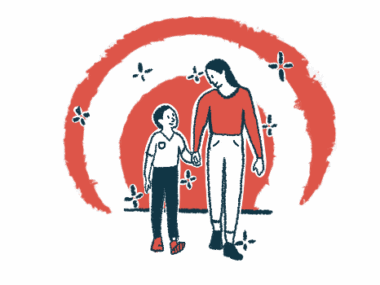Regular food security checks reduce low weight risk in children: Study
'Food deserts' are risk factor for being underweight in children, adults
Written by |

Regular assessments of food security — a measure of whether nutritionally adequate foods are available — are linked with a lower risk of children with cystic fibrosis (CF) being underweight, a U.S. study reports.
Such assessments are also associated with better body mass index (BMI; a measure of body fat) in adults when conducted in writing. Living in a “food desert” with limited or no access to healthy, nutritious food was a risk factor for being underweight in both children and adults.
“The higher prevalence of food insecurity among PwCF [people with CF], along with their greater caloric needs and CF-related dietary requirements, calls for routine food insecurity screening to identify needs and provide food assistance,” the researchers wrote in “Food insecurity screening and local food access: Contributions to nutritional outcomes among children and adults with cystic fibrosis in the United States,” which was published in the Journal of Cystic Fibrosis.
Having a lower than normal weight is associated with worse lung function and survival with CF.
More than 30% of CF patients report being food insecure, which means nutritionally adequate foods are limited or may not be available. This is linked with abnormal eating patterns or reduced food intake. Among the factors listed for such a high percentage of food insecure patients (higher than the average among all U.S. households) are their higher caloric needs, disrupted educational opportunities, limited occupational choices, and unstable employment.
Food insecurity has been implicated in adverse health outcomes such as diabetes, hypertension, and obstructive airways disease in the general population, though evidence from patients is limited.
Low weight in CF and screening for food insecurity
Given the substantial percentage of CF patients under financial hardship and how nutritional status and socioeconomic status correlate among people with CF, “it is important to understand factors related to food security and food access that play a role in the nutritional outcomes of this population,” wrote researchers in the U.S. who analyzed 2019 data from the CF Patient Registry (CFFPR) that were linked with the outcomes from a survey about food insecurity and food access according to ZIP code. The surveys were sent to CF program directors in February 2021.
Nutritional status was measured in adults via the annualized mean BMI. The annualized BMI percentiles (BMIp) was used in children. Underweight in children was a BMIp below 10% and in adults a BMI lower than 18.5 kilograms per square meter (kg/m2). Overweight or obesity was defined by a BMIp of at least 85% for children and a BMI of 25 kg/m2 for adults. The analysis included 11,971 children (mean age, 10.2; 48.9% girls) and 14,817 adults (mean age, 32.7, 48% women).
In children, being a boy, of older age or having CF-related diabetes was linked with a higher risk of being underweight. In adults, it was seen among those who were younger, black, with public or no insurance, CF-related diabetes, or with pancreatic insufficiency, which occurs when the pancreas doesn’t release enough digestive enzymes. In both groups, those who were underweight were more likely to use supplemental feeding.
A total of 137 CF programs responded to the survey, representing 71% of the pediatric population and 45% of adults. Among children, the survey outcomes revealed that screening for food insecurity at every visit was linked with a significantly lower risk of being underweight, even after adjusting for clinical and demographic factors. Children with public or no health insurance were significantly less likely to be screened at every visit compared to children with private insurance, 1.8% vs 3.1%.
A statistical model taking into account both food insecurity screening and area of food access showed that frequent screening of children at every visit (versus less frequently) was associated with 39% lower risk of being underweight.
Among adults, screenings conducted in writing were associated with a significantly higher risk of being overweight and having a higher BMI.
A statistical analysis was conducted to understand how the risk of being underweight or overweight correlated with area of residence. For both children and adults, living in a “food desert” was associated with a significantly higher risk of being underweight.
Overall, “screening for food insecurity by CF care programs and local food access are independent predictors of nutritional status among children and adults with CF in the United States,” wrote the researchers, who noted further research could “determine the optimal frequency, modality, documentation, and other attributes of food insecurity screening for children and adults with CF receiving care in multidisciplinary CF programs.”







